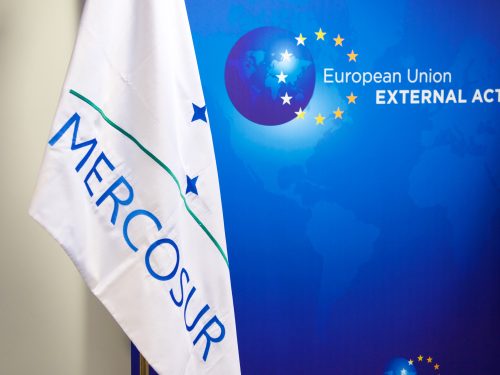News
Share on
Today the Director General, Francesca Mariotti intervened in Hearing at the joint Environment and Production Activities Committees, as part of the examination of the bill converting DL No. 17 of 2022 into law: Urgent measures for the containment of electricity and natural gas costs, the development of renewable energies and the revitalisation of industrial policies.
During 2021 the price of electricity in Italy rose from around 50 €/Mwh to 200 €/Mwh and also the gas price rose from around 20 €/Mwh to almost 80 €/Mwh: in both cases, there was an increase of 400%. In 2022, electricity and gas prices continued to inflate with a further +200%. To date, the increase amounts to 1,497.8% compared to February 2020 prices (before the outbreak of the pandemic): in other words, we are at 15 times the price then.
The deflagration of the Russian-Ukrainian conflict has worsened the picture, projecting huge uncertainties on gas and oil supplies and this, given the high European and Italian dependence on Russian imports of these sources, has ended up fuelling speculative appetites of a financial nature, which price the possible energy risk.
We are witnessing a catastrophic storm over enterpriseswhich, once their profit margins have been wiped out, have no choice but to stopping productionbecause it was no longer economically viable.
The economic context in which the Energy Decree Law was passed has totally changed for the worse. The European Commission on 8 March certified this change by proposing unprecedented market intervention measures, in particular for natural gas, in its REPowerEU communication. We believe that European action is imperative in the short term. Measures should be taken to curb speculative manoeuvres in the energy and emission allowance markets of CO2 (ETS mechanism). Action at Member State level is important for a price regulation coordinated. Furthermore, in the natural gas market, it is important that security sharing measures with regard to storage are accompanied by measures to ensure strong integration between transmission systems, eliminating tariff barriers (pancaking) that still exist at the regulatory level, penalising Italy.
As for the ETS mechanism, with the setting of new and more ambitious emission reduction targets, the ETS market underwent a significant speculative evolution with the entry of many financial players. This contributed to an unprecedented increase in the price of allowances, which rose from 6/7 €/Ton CO2 to around 90 €/Ton in two years. The contingent use of more coal and fuel oil in electricity production risks further fuelling the price escalation.
We therefore support a suspension of the ETS mechanism so that all market-compatible measures are taken to limit recent purely speculative effects. Among these actions, it would also seem useful to review the functioning of the Market Stability Reserve to enhance its balancing function.
We believe there is a need for an unprecedented reinforcement of the measures of the decree that have been adopted so far, both at the economic level, to calming the devastating impacts of the energy shockboth on the structural side, for increase the resilience of the Italian production system. We share the government's need to use all available economic levers, including through a thorough revision of energy taxation and parafiscal charges by sterilisingthe incremental effects of higher energy prices.
The decree had the merit of introducing an important paradigm shift for national energy policy of the past 10 years regarding the exploitation of domestic natural gas resources. We also particularly appreciate the reintroduction and improvement of the tax credit with regard to both the electricity and gas sectors. However, the constraint on public resources is understandable, In the current scenario, it is unthinkable to continue to act on a quarterly basis, support measures must be given more stability, with durations of at least one to two years.
In conclusion, Confindustria presents three proposals for action to complement and supplement the measures launched by the government:
- make available to electro-intensive industries 25 Twh at a predetermined price of 50 €/Mwh, against the Italian industry's commitment to develop investments for a production capacity equivalent to 12 GW of photovoltaic production and 5 GW of wind power production within the eligible areas that the State and Regions must identify by law (Legislative Decree 199/2021 art. 20 and 21 Renewable Energy Directive) by 31/12/2022;
- combine extraction of domestic gas resources with economic benefits to companies through tax credits as of 1 January 2022 and until the physical availability of the gas supplies delivered by the GSE;
- maximiseup to the limits allowed by the European Commission, tax and parafiscal rate concessions of electricity and gas bills.
We are aware that the measures outlined entail important political choices, but we emphasise that the four decrees on the subject of expensive energy adopted to date (amounting to approximately EUR 11.4 billion supporting households, the service sector and artisans, and of EUR 5.4 billion in support of the Italian manufacturing system) did not appear sufficient to stem a crisis which, in the event of further delays, will cause irreversible damage to the national productive fabric.




